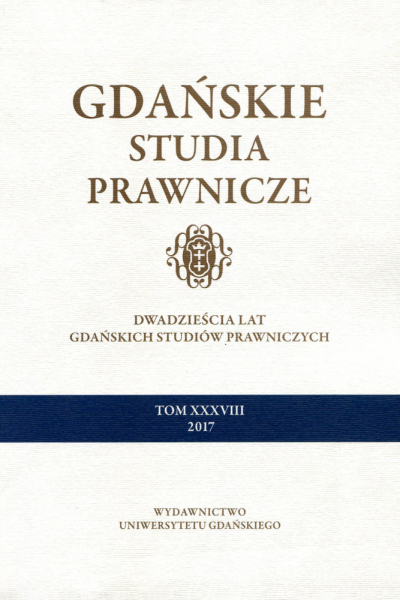Interpretacja klauzuli ‘aktualna wiedza medyczna’ w polskim prawie – zarys zagadnień epistemologicznych i metodologicznych
Interpretation of the Clause ‘Current Medical Knowledge’
in Polish Law – an Outline of Epistemological and Methodological Issues
Author(s): Tomasz WidłakSubject(s): Sociology of Law
Published by: Wydawnictwo Uniwersytetu Gdańskiego
Summary/Abstract: ‘Current medical knowledge’ is a general clause often used in texts of Polish statutes and regulations. Its proper interpretation is crucial for the purpose of determining the contents of the right to health care as well as for defining standards for the purpose of legal and ethical evaluation of medical conduct by doctors and members of other medical professions. The article presents an outline for general analysis of the term, taking into account the epistemic and methodological problematique invariably accompanying the attempt to determine the semantic range of the phrase ‘current medical knowledge’ as well as to define the temporal criterion of ‘currency’.First, the Author discusses the epistemic status of medical knowledge. Medical knowledge is both theoretical and practical in its sources and every medical practitioner participates in the epistemic community that generates it. For ethical reasons, it is topical for every new claim within medical science to be responsive to falsification along Carl Popper’s proposal. Second, the temporal criterion of ‘currency’ is to be understood in contrast to terms such as ‘contemporary’ as well as ‘latest’. Access to current medical knowledge may be legitimately limited by both subjective and objective factors, such as individual doctor’s specialization and skills, availability of equipment and medicines or due to systemic financial and legal constraints. In summary, the article concludes that uncritical application of evidence-based medicine in the form of general guidelines or standards in the process of legal evaluation of medical conduct should not determine in advance the liability of medical practitioner in individual cases. Medicine is also a humanistic science in its methods, and methodologically sound decisions based on practical experience of an individual doctor should not be disregarded when interpreting the term of ‘current medical knowledge’.
Journal: Gdańskie Studia Prawnicze
- Issue Year: 2017
- Issue No: XXXVIII
- Page Range: 603-614
- Page Count: 12
- Language: Polish

